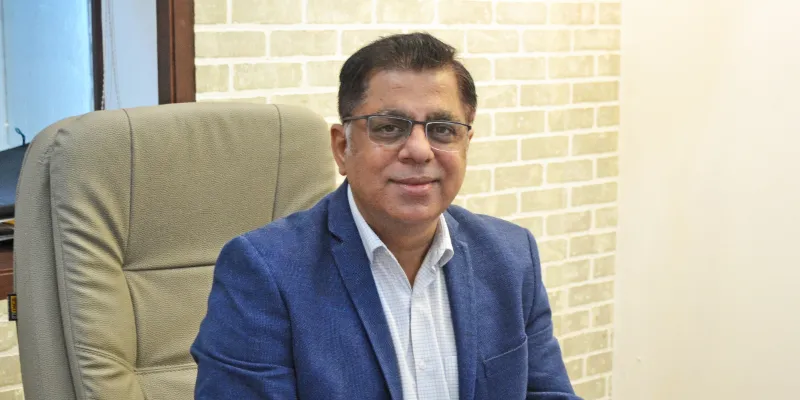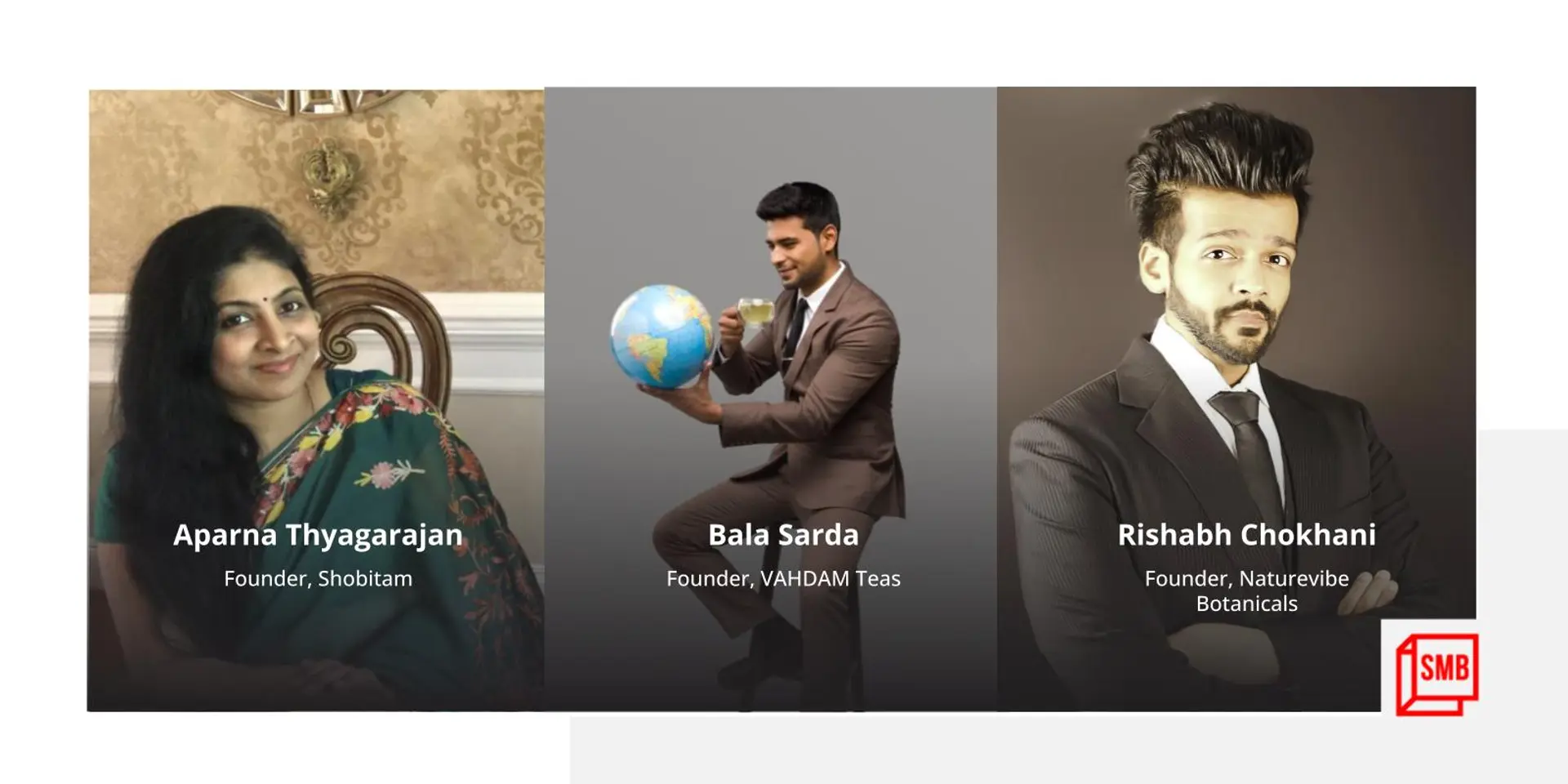Meet 5 homegrown brands creating waves in the foreign market
India's exports in December 2021 surged 37 percent on an annual basis to $37.29 billion. This shows that homegrown companies are creating a presence beyond the country's boundaries. In this article, SMBStory drafts a list of 5 homegrown brands that are making a strong impact internationally.
Commerce Minister Piyush Goyal, in a recent press conference, said that India's exports in December 2021 surged 37 percent on an annual basis to $37.29 billion, the highest-ever monthly figure, on the back of healthy performance by sectors like engineering, textiles, and chemicals.
"With $300 billion in the first nine months of 2021-22, we are on track to achieve our target... This growth is satisfying, and we must aspire for more,” he added.
With Atmanirbhar Bharat being a predominant sentiment in these times, people are increasingly leaning towards homegrown brands and supporting small businesses. This has also given rise to companies that are primarily targeting their business beyond the country’s boundaries to put India and their brand on the global map.
In this article, SMBStory lists five such Made in India brands that are making waves internationally.
Vahdam Teas

Bala Sarda, Founder & CEO, Vahdam Teas
According to an IBEF report, India ranks second in tea production. In fact, after water, tea is the most consumed beverage across the world.
Geographically and climate-wise, India is suitable for tea cultivation, with the northeast region, north Bengal, and southern India accounting for the highest tea production.
In recent years, India’s Darjeeling tea has made a name for itself in the global market, with UK brand Twinings Tea and Starbucks subsidiary Teavana boasting of the Indian flavour to their customers.
Although Indian teas are in wide demand, Bala Sarda felt that India as a brand is not efficiently placed in foreign markets.
In an interaction with SMBStory, the Founder and CEO of Vahdam Teas, says,
“There are foreign brands that are sourcing tea from India, and the consumers abroad love the taste. However, I didn’t find the ‘Made in India’ tag as the selling point there. The perception is if an Indian brand is selling the same product, it wouldn’t be of good quality.”
Hailing from a family of tea exporters, Bala grew up in an environment where substantial know-how of the tea industry was inevitable.
After graduating from college, Bala visited his family tea estates in Darjeeling and realised the massive potential Indian tea had and the value it could create within the global tea industry.
In 2015, at the age of 23, Bala founded — a digitally native, vertically integrated global wellness brand — that ships one of India’s finest teas to the world. The company is headquartered in New Delhi.
“Not many brands take the initiative to promote Indian tea by launching a homegrown brand in foreign countries. You see Starbucks introducing turmeric latte. It is Westerners who are promoting the benefits of our homegrown products, so why shouldn’t we? I wanted to crack this opportunity and retain the value at the source,” he explains.
After passing the USDA certification and non-GMO verification, Bala launched in the US market. He later explored Canada, the UK, and Germany as potential markets.
Vahdam is now available in more than 1,000 brick and mortar shops in the US. It is one of the first few Indian brands to list in premium and legacy retail chains in the US, including Nordstrom, Neiman Marcus, Bloomingdales, Nordstrom, Bergdorf Goodman, and Saks Fifth Avenue.
KSP Inc

Puneet Bery, Founder of KSP INC
In the 1980s, Puneet Bery’s father Santosh Kumar Bery used to manufacture diesel engine crankshafts, with around 20 employees in a single manufacturing unit in Meerut.
At the time, Puneet was observing the shifts in the industry. He realised that crankshafts are going to become redundant and fade out with technology advancements in the sector.
This got Puneet thinking about a global exports opportunity to be leveraged with existing resources and capital. After brainstorming, he decided to focus on manufacturing pipeline flanges, which was particularly in high demand in the Middle East.
Puneet says that in those days, countries in the Middle East had contracts with US companies for maintaining and upgrading their oil refineries. Wanting to tap into this market, Puneet started Noida-based KSP Inc in 1987.
KSP was launched as a B2B company that manufactured pipeline flanges for the US companies. The business did well for a few years.
However, in the 1990s, the US put an embargo on stainless steel flanges from India and China, causing a fervour in the industry. Puneet saw this opportunity to evolve the business and look for another business opportunity.
He recalls, “During my travels abroad, I was very fascinated with the leisure spaces. In the US, I saw stores with temporary sheds with a garden and a space for recreational activities.”
This inspired Puneet to launch garden decor products in 1991. While this business vertical was doing well, Puneet saw a dip in sales.
Not wanting to fall behind in the market, he decided to diversify his product line once more and in 2001, KSP Inc launched bird feeders. The company even landed a contract from a US company, and currently, exports bird feeders to more than nine countries.
Puneet says customers are intelligent and know what they want. As a supplier, he needs to be in tandem with the sensibilities of the end-buyer.
With this as the core principle, KSP further diversified its portfolio and launched home decor products in 2004.
Looking back, the founder says that pivoting and diversifying ensured that the company has ample work during all seasons.
Today, KSP manufactures several products including bird feeders, lawn and garden decor, furniture, fireplace tools and accessories and home storage. It exports to several countries, including the US, the UK, Denmark, Germany, Sweden, Canada, France, and Australia. Some of its clients include Walmart, Lowes, Tesco, Sainsbury, Staples, among others.
Naturevibe Botanicals

Rishabh Chokhani, Founder, Naturevibe Botanicals
When Rishabh Chokhani (32) decided to adopt clean eating, he couldn’t believe the impact on his body. The transformation did not take long to show, and the results were astonishing - both physically and mentally.
This inspired him to research botanicals, which led him to start his own brand of health foods called in 2017.
Rishabh’s family business, based in Mumbai, was into pharmaceuticals. This made it easier for Rishabh to study the wellness and related industries. He sensed a huge opportunity in the organic foods industry, and decided to set up his business along the same lines.
In an interaction with SMBStory, he says,
“In India, at the time, the organic products market was still growing, but in the US, it was already a huge craze. Though most of the natural ingredients used in any product has its roots in India, there were very few Indian suppliers in the foreign market. This is the space I intended to tap into.”
When he launched, Rishabh started by catering to the US market, and soon expanded to Europe. After operating in these foreign markets, and getting a know-how of the industry, Rishabh ventured into the Indian market in 2019.
Today, Rishabh claims, the company is exporting Indian botanicals worth Rs 250 crores, and clocked a turnover of Rs 140 crore in FY 20-21 ,with a global customer retention rate of 40 percent.
Shobitam

Aparna Thyagrajan and Ambika Thyagrajan, Co-founders, Shobitam
Aparna Thyagrajan was just 12-years-old when she first sewed a dress for her sister Ambika on her second birthday from an old saree. Ambika was inspired by her aunt who used to bring a lot of artisanal and hand-painted fabrics and make dresses out of them.
As Aparna grew up, her love for artisanal products and designs grew deeper. Ambika also picked up interest and the sister duo connected with many artisans and weavers directly to buy sarees for themselves. This was Aparna’s first stint with Indian ethnic fashion.
After getting married in 2002, Aparna moved to Seattle, but what she missed the most was shopping for authentic Indian ethnic wear.
“Buying Indian ethnic wear in the US was not a very satisfying experience. I always felt short-changed for variety and quality. During one of my visits to India in 2018, I was working with a zardosi artist for sarees that Ambika and I were designing for ourselves for an event. The karigar suggested that we start a boutique and that he would work with us,” Aparna tells SMBStory.
This got Aparna thinking and she realised that just like her, there would be many non-resident Indians (NRIs) across the world struggling to have access to a wide variety of Indian weaves at one place.
During one of the family dinners, Aparna put out the idea of starting an Indian ethnic fashion brand that would cater to the demands emerging from outside India. Their excitement and belief in the idea made Aparna more confident, and she started Shobitam in March 2019 along with her sister Ambika.
Aparna started by selling 15 sarees, and in just two years, Shobitam is shipping products to over 30 countries. The brand has witnessed over 300 percent annual growth in the last two years, and had an annual turnover of Rs 9 crore in FY 21. It has more than 1,000 products listed on its website, and is featured as one of the top stores on Etsy, Aparna claims.
The Ayurveda Experience

Rishabh Chopra, Founder, The Ayurveda Experience
By 2010, Rishabh Chopra – former Country Head (India), and a member of the global leadership team at the international not-for-profit organisation, AIESEC – had travelled to about 26 countries. During his travels, he realised that Indian ideas and philosophies were keenly looked upon and consumed in the international market.
Rishabh, who used to market and sell courses on Indian and Eastern philosophies in the US, realised that there was a demand in the foreign market for resources and education about Ayurveda. Becoming an entrepreneur was always on his mind, and seeing the gap in the international market, which did not have major Ayurveda players, made him ponder deeper.
I asked myself, “If Yoga could become so big, then why not Ayurveda?”
In 2014, Rishabh launched The Ayurveda Experience as a content platform, and in 2017, he ventured into the manufacturing and selling of Ayurveda products.
Rishabh says he was clear from the beginning that the company was going to be a global digital business based out of India.
He says that the American and European markets, where Ayurveda had started gaining traction, were not easy markets to penetrate in the initial years. Rishabh explains,
“Ayurveda was not something that you could get by searching on Amazon. Hence, you really have to penetrate into the market, create awareness, and understand the pulse of the customers to create content for them.”
The company offers several courses on its platform, which educate the audience about various streams of Ayurveda and other topics such as weight loss, auto-immune diseases, overcoming thyroid, anti-ageing and much more.
These courses are priced between Rs 1,000-Rs 3,000.
From 2017 onwards, the brand decided to become a full-fledged Ayurveda offering by manufacturing and selling products, which are also available on its website. Though he doesn’t specify the locations, Rishabh says that the products are contractually manufactured in India.
The Ayurveda Experience offers a host of products for the face, body and hair, including lip balms, oils, cleansers, serums, toners, etc. They are priced between $4 and $80.
is entirely a D2C brand, and is not listed on any ecommerce platforms.
Today, the company has carved a niche for itself in the international market. It has served 400,000 customers to date in 23 countries, including the US, Canada, Australia, New Zealand, and a few other European countries.
Edited by Anju Narayanan









